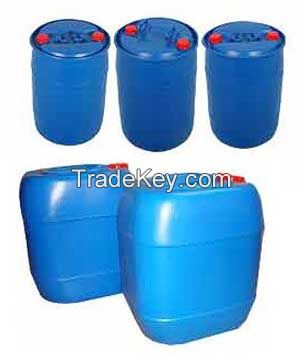Description
Antiscalant is an additive injected in water before subjecting it
to reverse osmosis. An antiscalant, as the name suggests, serves to
delay the scaling of salts and particles such as calcium carbonate,
calcium sulfate and barium sulfate. Scaling simply means the
accumulation of the salt and particles on the membrane used in
reverse osmosis, causing blockage. Most natural water will have
high levels of salts and particles, and the addition of an
antiscalant will make the process of reverse osmosis go smoother
and faster.
Reverse osmosis in turn is the process of filtration in which large
molecules and ions are removed from the water through pressurizing
it and making it pass through a selective membrane. Only the
solvent or purified water comes out on the other side. This process
is usually used to purify ground water, salt water, or even tap
water in homes.
Antiscalants inhibit precipitation reactions using three
principles: threshold inhibition, crystal modification and
dispersion. Antiscalants are cheaper compared to water softening,
which is why it is a preferred choice in large scale reverse
osmosis operations.
Antiscalants:
Scale and fouling can be very damaging to your membrane system,
costing you a loss in production and money. Thats why its important
to invest in antiscalant chemicals to clean the system
properly.
Scale is a white chalky buildup of calcium minerals that occur as
the water precipitates. Some common examples of scale are calcium
carbonate (CaCO3).
